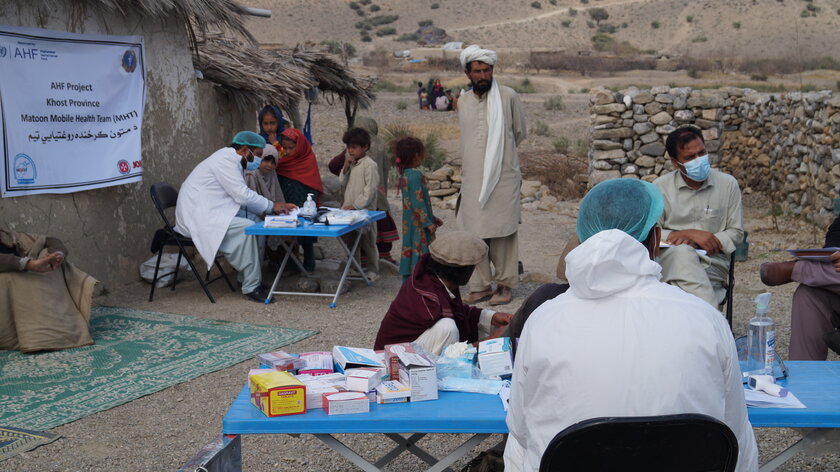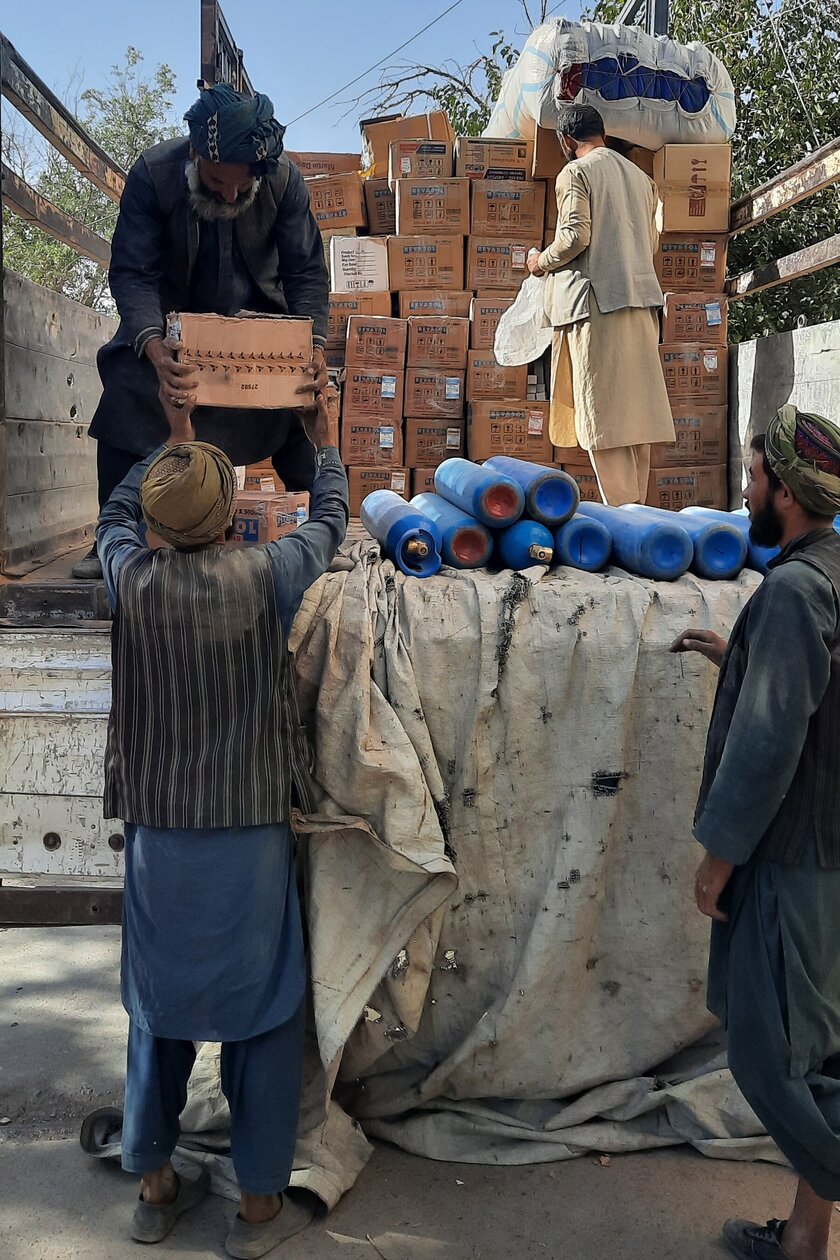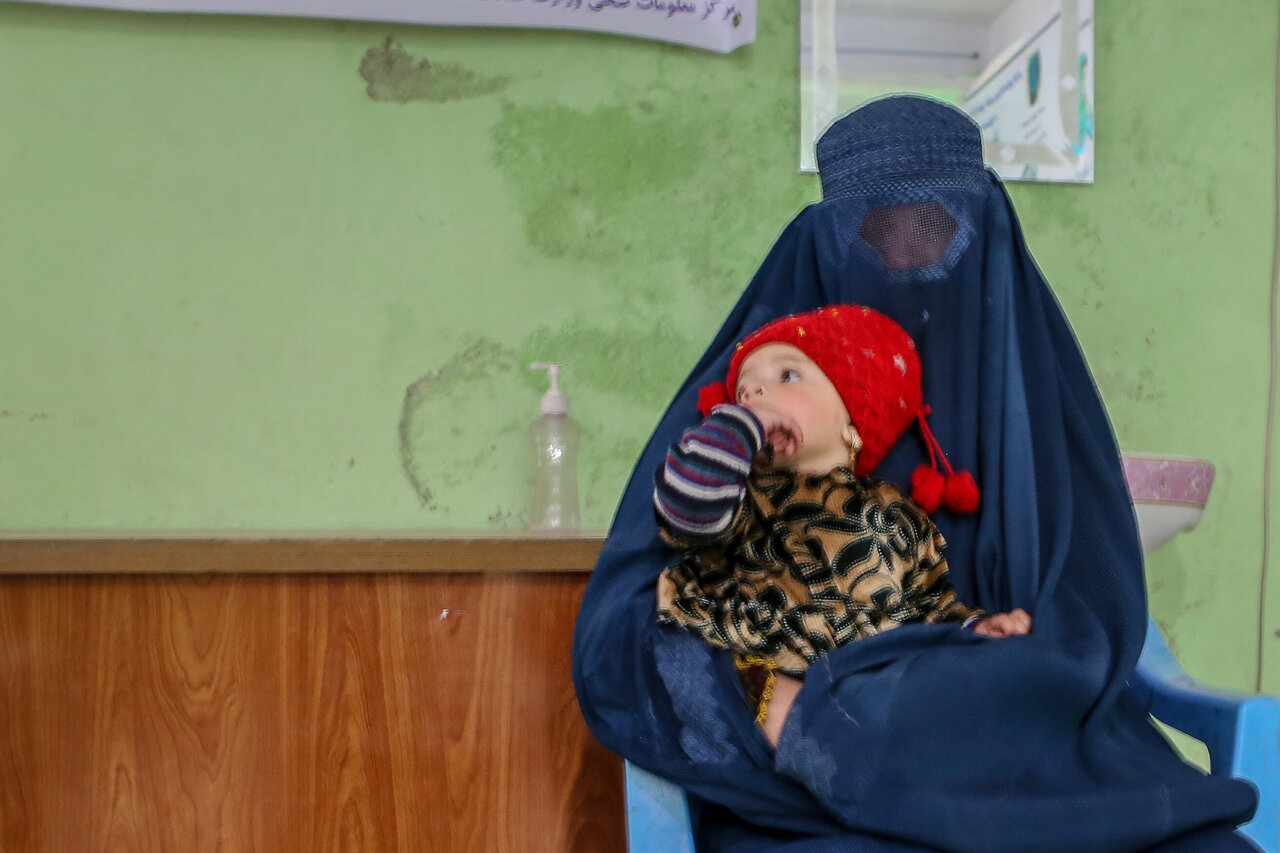Afghanistan: Johanniter continues support

Berlin / Kabul, 14 September 2021
Medical care threatened by faltering medicine supplies
Despite all difficulties and the lack of clarity about future developments after the Taliban took power, Johanniter is doing everything in its power to continue its long-standing work in Afghanistan. The focus is on the urgently needed medical care for the population. Johanniter is active in the provinces of Badghis and Khost, as well as in the capital Kabul. Together with Afghan partner organisations, Johanniter continues to provide medical care to around 200,000 people there.
In Khost province, not far from the border to Pakistan, Johanniter and its partner HADAAF have been providing basic medical care to refugees and residents of the surrounding communities for many years. "Many organisations are no longer active in Khost, and the health care situation is deteriorating. Therefore, we definitely want to continue our support here," says Rik Vaassen, programme officer at Johanniter International Assistance.
We successfully delivered urgently needed medicines and dressing materials to our medical facilities in Badghis. This will ensure basic medical care for around 55,000 people by the end of the year. But the need is continuously increasing, as the state health system is threatening to collapse.
Expansion of medical care necessary
In Badghis province, in the west of the country, Johanniter started a new project to improve medical care in June. More than 52,000 people, who previously had limited or no access to a doctor, can now be treated and also receive psychosocial support.
In the capital Kabul, the need for medical care has increased considerably, as many people had sought refuge there in the face of the Taliban's imminent takeover. Together with another partner organisation, Johanniter is providing basic health care for people living in the city's slums. "The need is so great that we have to set up additional mobile clinics," says Vaassen. The project is financially supported by the German Federal Foreign Office.
Long-awaited delivery arrived

Thanks to our network in Afghanistan, we have now been able to deliver urgently needed medicines and first aid supplies to our medical facilities in Badghis, in western Afghanistan. This will ensure basic medical care for around 55,000 people by the end of the year. "Medical needs in our project region have risen sharply in recent months. More than 300 patients now come to the health stations every week," reports Rik Vaassen, Johanniter programme officer in charge. "The state health system is in danger of collapsing due to a lack of medication and unpaid salaries for medical staff. That is why more and more patients are seeking help from us."
National staff still working in the country
By the end of the evacuation by the international community, Johanniter had only been able to move its three international staff members out of the country. The 30 national staff members are still in the country. "Johanniter is doing all it can to support its staff to leave the country if they wish to do so. They are on the official lists of the german federal government, but most of them do not have passports. Therefore, it is difficult to almost impossible to bring them legally across the border to a German embassy," Vaassen continues. "Should our staff be able to leave the country, we have worked with our partners and international staff to develop a plan for further coordination and implementation of activities."
